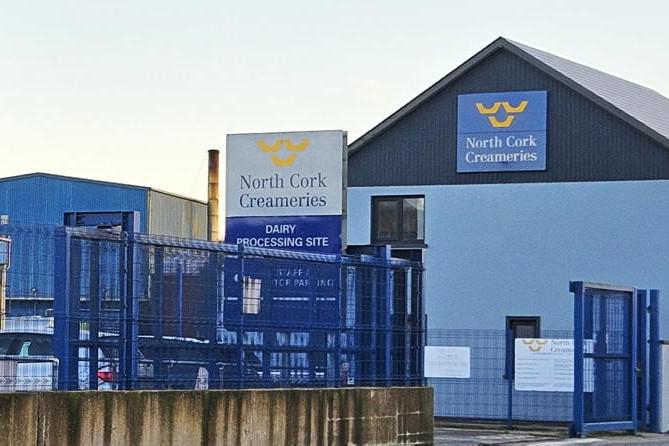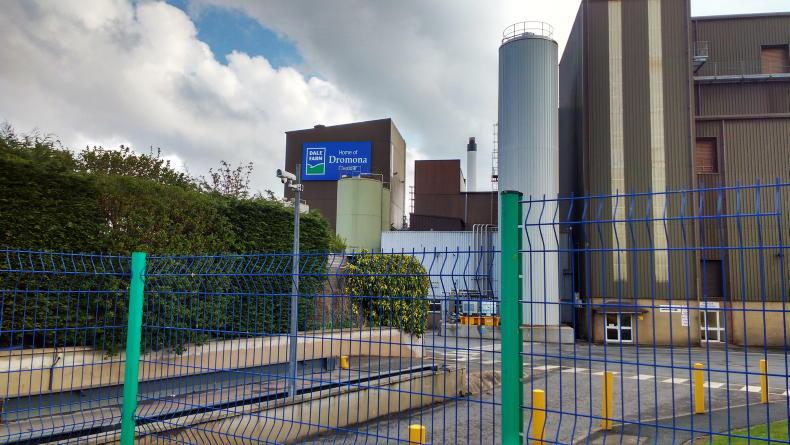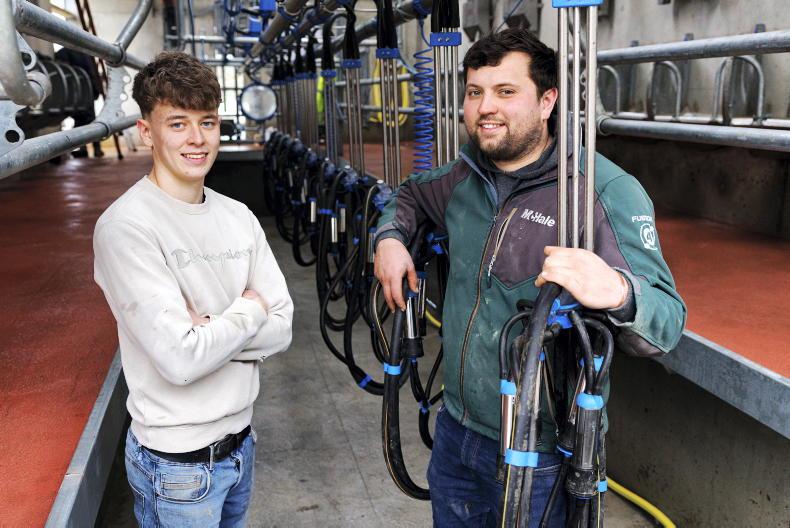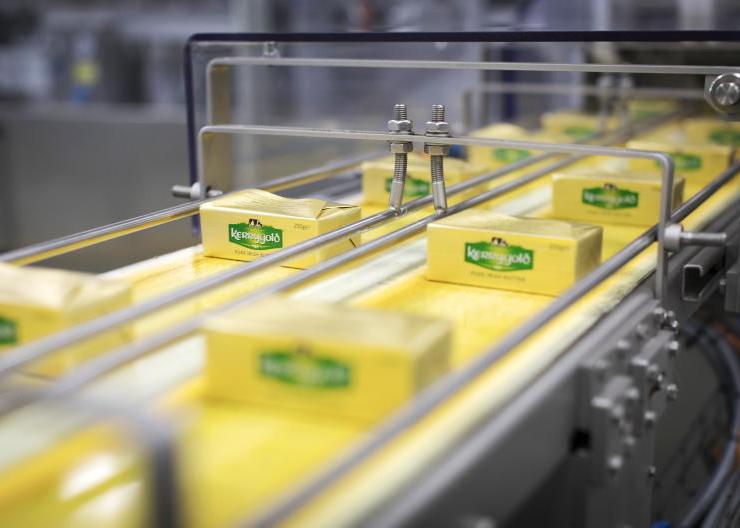The proposed merger deal between Lakeland and LacPatrick co-ops has now been finalised and will be explained to shareholders at meetings next week, ahead of a special general meeting (SGM) of each society that will take place on 23 October 2018.
To be approved, the deal requires more than 75% of shareholders to vote in favour at each SGM. If the vote is over 50%, but less than 75%, provision has been made for a second SGM in early November, when a simple majority is required.
Assuming the merger deal is approved, it should be completed in early 2019 and will create the second largest dairy co-op in Ireland, with a milk pool close to 1.8m litres. However, the new entity will become the largest milk buyer in NI, with an estimated pool of approximately 1.2bn litres, or close to 50% of all milk produced here. The proposed deal will require the approval of competition authorities on both sides of the Irish border.
The new business will be named Lakeland Dairies Co-operative Society Ltd. In other words, while it is a new company, it will retain the current well-established Lakeland brand in full. Existing Lakeland shareholders will have 73% ownership in the new co-op, with LacPatrick shareholders taking 27%.
That split is based on current milk pools and earnings in each respective business.
In total, there will be approximately 4,800 shareholders. At present, Lakeland has around 4,000, of whom 3,700 are in the Republic of Ireland. LacPatrick has 912, of whom 533 are in NI.
A new management team is to be led by current Lakeland chief Michael Hanley, who will take on the role of CEO and answer to an interim board made up of the 15-member Lakeland board, plus eight nominated by LacPatrick from its current board.
This interim board will select a chair from among the Lakeland directors and two vice-chairs, one from each co-op. A governance sub-committee will then be appointed to look at longer-term structures, but to reflect the make-up of the new milk pool it is expected that at least one third of directors on the new board will be from NI.
In terms of milk payments, it is proposed that all LacPatrick suppliers move over to the terms currently offered to Lakeland suppliers. So farmers will be paid on the 15th of the month (rather than the 20th) and will be offered free transport on alternate day collection. If everything goes to plan, this should begin in early 2019.
Efficiency
Speaking to the Irish Farmers Journal, Lakeland chair Alo Duffy and LacPatrick chair Andrew McConkey are both clear that the merger is in the best interests of existing suppliers, and will drive efficiencies throughout the business, including in milk transport.
For LacPatrick, the £30m investment in a new drying plant at Artigarvan, and then added expense sorting out effluent issues, has drained cash reserves and left the co-op unable to support prices this spring. When base price was cut to 25p/litre for March supplies it prompted concerns whether the co-op would be able to hold its milk pool together, and initiated the current chain of events.
“The decision to open talks with Lakeland was a simple enough decision for us when we looked at all the options. We are excited something good will be created and have no doubt in five years, history will judge it well. We are expecting a very high percentage of our current pool to go with the new entity,” said McConkey.
Lakeland probably has more work to do to convince shareholders of the merits of the deal, as it takes on €28m of long-term debt from LacPatrick. But Duffy maintains that the extra debt is manageable, and with modern processing facilities at both Artigarvan and Ballyrashane, it secures Lakeland’s processing capacity into the long term.
If the deal didn’t go ahead, it would have been likely that Lakeland would need to build a new drying plant to deal with producer expansion, to be ready by 2021 and at an estimated cost of €100m.
The deal will also give Lakeland an opening into retail, supplying yoghurts along with liquid milk from both from the Monaghan and Ballyrashane sites. There is also the texturised butter plant at Ballyrashane and the LP milk powder brand, which is strong in Africa.
“We are convinced the deal is in the interests of our milk producers in the northern half of Ireland. That is our absolute priority,” said Duffy.
Read more
LacPatrick moves to stabilise milk pool
LacPatrick milk pool still intact
The proposed merger deal between Lakeland and LacPatrick co-ops has now been finalised and will be explained to shareholders at meetings next week, ahead of a special general meeting (SGM) of each society that will take place on 23 October 2018.
To be approved, the deal requires more than 75% of shareholders to vote in favour at each SGM. If the vote is over 50%, but less than 75%, provision has been made for a second SGM in early November, when a simple majority is required.
Assuming the merger deal is approved, it should be completed in early 2019 and will create the second largest dairy co-op in Ireland, with a milk pool close to 1.8m litres. However, the new entity will become the largest milk buyer in NI, with an estimated pool of approximately 1.2bn litres, or close to 50% of all milk produced here. The proposed deal will require the approval of competition authorities on both sides of the Irish border.
The new business will be named Lakeland Dairies Co-operative Society Ltd. In other words, while it is a new company, it will retain the current well-established Lakeland brand in full. Existing Lakeland shareholders will have 73% ownership in the new co-op, with LacPatrick shareholders taking 27%.
That split is based on current milk pools and earnings in each respective business.
In total, there will be approximately 4,800 shareholders. At present, Lakeland has around 4,000, of whom 3,700 are in the Republic of Ireland. LacPatrick has 912, of whom 533 are in NI.
A new management team is to be led by current Lakeland chief Michael Hanley, who will take on the role of CEO and answer to an interim board made up of the 15-member Lakeland board, plus eight nominated by LacPatrick from its current board.
This interim board will select a chair from among the Lakeland directors and two vice-chairs, one from each co-op. A governance sub-committee will then be appointed to look at longer-term structures, but to reflect the make-up of the new milk pool it is expected that at least one third of directors on the new board will be from NI.
In terms of milk payments, it is proposed that all LacPatrick suppliers move over to the terms currently offered to Lakeland suppliers. So farmers will be paid on the 15th of the month (rather than the 20th) and will be offered free transport on alternate day collection. If everything goes to plan, this should begin in early 2019.
Efficiency
Speaking to the Irish Farmers Journal, Lakeland chair Alo Duffy and LacPatrick chair Andrew McConkey are both clear that the merger is in the best interests of existing suppliers, and will drive efficiencies throughout the business, including in milk transport.
For LacPatrick, the £30m investment in a new drying plant at Artigarvan, and then added expense sorting out effluent issues, has drained cash reserves and left the co-op unable to support prices this spring. When base price was cut to 25p/litre for March supplies it prompted concerns whether the co-op would be able to hold its milk pool together, and initiated the current chain of events.
“The decision to open talks with Lakeland was a simple enough decision for us when we looked at all the options. We are excited something good will be created and have no doubt in five years, history will judge it well. We are expecting a very high percentage of our current pool to go with the new entity,” said McConkey.
Lakeland probably has more work to do to convince shareholders of the merits of the deal, as it takes on €28m of long-term debt from LacPatrick. But Duffy maintains that the extra debt is manageable, and with modern processing facilities at both Artigarvan and Ballyrashane, it secures Lakeland’s processing capacity into the long term.
If the deal didn’t go ahead, it would have been likely that Lakeland would need to build a new drying plant to deal with producer expansion, to be ready by 2021 and at an estimated cost of €100m.
The deal will also give Lakeland an opening into retail, supplying yoghurts along with liquid milk from both from the Monaghan and Ballyrashane sites. There is also the texturised butter plant at Ballyrashane and the LP milk powder brand, which is strong in Africa.
“We are convinced the deal is in the interests of our milk producers in the northern half of Ireland. That is our absolute priority,” said Duffy.
Read more
LacPatrick moves to stabilise milk pool
LacPatrick milk pool still intact









SHARING OPTIONS